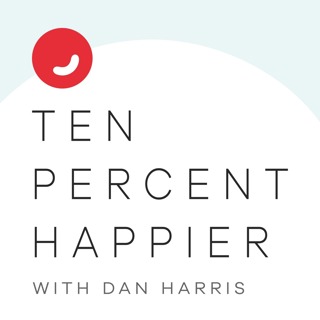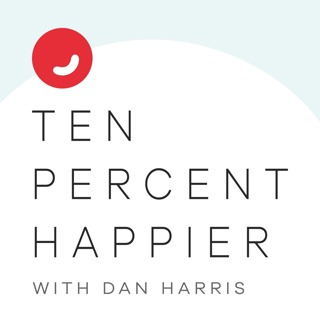
Matt Gutman, The Boys in the Cave
ABC News Senior National Correspondent Matt Gutman is, unfortunately, no stranger to tragedy, both in his career as a journalist and his personal life. He learned the practice of meditation at just 12 years old, mere months before his father would be killed in a plane crash. And now, nearly 30 years later he's reporting on how meditation played a role in the miraculous rescue of 12 boys trapped in a cave in his new book, "The Boys in the Cave: Deep Inside the Impossible Rescue in Thailand." He opens up about his own personal tragedy and gives a riveting account of that rescue in this week's conversation. Have a question for Dan? Leave us a voicemail at 646-883-8326.
14 Nov 20181h 1min

Jordan Harbinger, Networking and Relationship Development
7 Nov 20181h 3min

Judson Brewer, Unwinding Anxiety
31 Okt 201852min

Tal Rabinowitz, Forgoing Hollywood and Finding Meditation
Tal Rabinowitz was a top executive at NBC, developing some of the network's high profile comedy programs, but after nearly 20 years in the business she was let go. And then, SHE let go. Rabinowitz found herself burned out and ready to take her career in a new direction. She tells Dan how and why she decided to open up her own meditation studio, what her meditation practice looks like and how she's introducing meditation to her two-year-old daughter.
24 Okt 201856min

Adam Grant, The Benefits of Generosity
Kindness has a bad rap, often being viewed as a sign of weakness. But Adam Grant, an award-winning researcher and Wharton's highest-rated professor, tells Dan Harris good guys don't have to finish last. In fact, Givers, those willing to help others, are often the top performers in their field of choice. Later in the interview, Dan and Adam engage in a thoughtful debate about the benefits of meditation.
17 Okt 20181h 14min

Shawn Achor, The Science Behind Gratitude
While so much of science is dedicated to finding the causes and cures for depression, anxiety and stress, Shawn Achor studies the opposite. He is a happiness researcher. Achor looks at the science of happiness and uses research-based techniques to make us more optimistic and help us lead happier lives.
10 Okt 20181h 15min

Strauss Zelnick, Becoming Ageless
At just 32 years old Strauss Zelnick became the president and chief operating officer of 20th Century Fox. He was young, successful and appeared to have it all, but internally he was struggling. Zelnick says he was unhappy, anxious all the time and drinking every night. Now, nearly 30 years later, Zelnick remains super successful and thanks to his daily physical and spiritual practice he's become the picture of health. Zelnick reveals his secrets in his new book Becoming Ageless: The Four Secrets to Looking and Feeling Younger Than Ever and discusses them with Dan in this interview.
3 Okt 20181h 8min

Susan Piver, Buddhist Wisdom for Modern Relationships
Susan Piver was a tough girl. Like, crime-fighting, head of the Boston chapter of the Guardian Angels tough. After nearly being killed by a drunk driver, her path led her to yoga, meditation and Buddhism -- which, by her own admission, made her "soft." But, only by softening toward herself, was she able to soften toward others. Having learned she could apply her teachings to relationships, in the midst of marital troubles and fearing divorce, she was inspired to apply the four noble truths of Buddhism to save her marriage.
26 Sep 20181h 15min




















